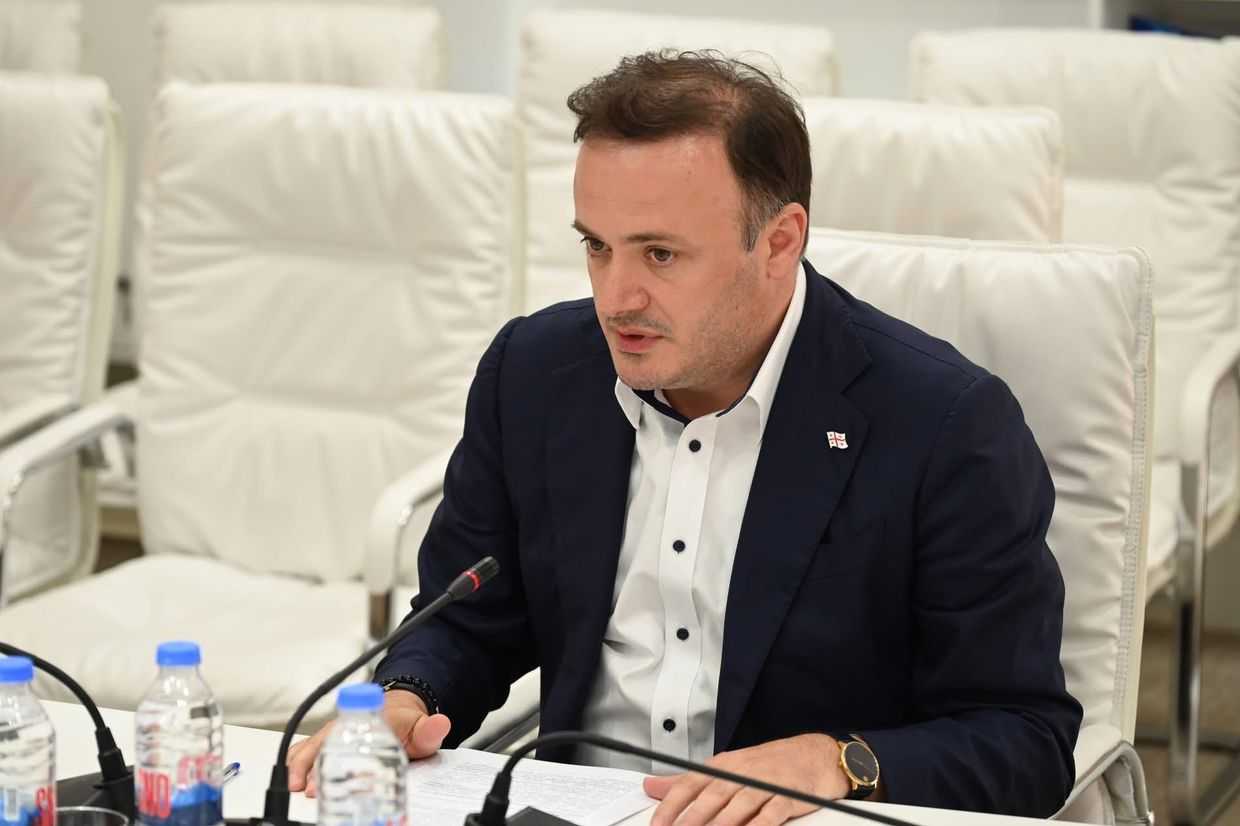‘A slap in the face of Georgia’s EU perspective’: opposition alarmed by judicial appointments

Members of an influential group of judges linked to Georgia’s ruling party have been re-elected to the High Council of Justice (HCoJ), an independent agency responsible for overseeing Georgia’s judiciary.
On Sunday, the 31st Conference of Judges elected Levan Murusidze and Dimitri Gvritishvili as new members of the High Council of Justice after their predecessors abruptly resigned.
The HCoJ has been accused by local watchdogs of being dominated by a ‘clan’ allied with the ruling Georgian Dream party. Murusidze and Gvritishvili had been frequently named as belonging to that influential group of judges.
On Monday, Nika Melia, the chair of the United National Movement (UNM), Georgia’s largest opposition group, warned the move would undermine the country’s bid for EU membership.
‘Yesterday, the Conference of Judges entirely ignored international recommendations’, Melia said, calling the appointments ‘impudent and insolent’ defiance of the EU’s recommendations.
Upon denying Georgia’s membership candidacy bid in June, the EU set out 12 recommendations the country must meet for its candidacy to be reconsidered. They included the implementation of a ‘transparent and effective strategy and action plan’ for judicial reforms.
It specified that the country would need to ‘undertake a thorough reform of the High Council of Justice and appoint the High Council’s remaining members […] in line with European standards and the recommendations of the Venice Commission’.
The election of Murusidze and Gvritishvili was also harshly condemned by opposition groups Lelo, For Georgia, Strategy Aghmashenebeli, and the non-parliamentary group Droa.
‘In an absolutely cynical move, as a slap in the face to the public and our European perspective, Murusidze and Gvritishvili are peacefully heading back to the High Court of Justice […] to fully consolidate the “clan” and capture the judiciary’, Droa’s chair Elene Khoshtaria stated on Monday.
Ignoring the most pressing problems in the system
Murusidze and Gvritishvili previously served on the council, leaving in 2017 and 2021 respectively, only to return on Sunday.
Levan Murusidze has been repeatedly criticised by local watchdogs, including the Coalition for an Independent and Transparent Judiciary, primarily for controversial rulings during the UNM’s time in power and his alleged connection with Georgian Dream since 2012. Murusidze has disputed claims that he is a leading figure in any judicial ‘clan’.
Last month, the former deputy head of Georgia’s State Security Service, Soso Gogashvili, corroborated claims that Murusidze had allied with the present government, and was delivering court rulings in their interests. Gogashvili is currently under investigation on unrelated charges of abuse of power.
[Read about other major allegations by Gogashvili on OC Media]
Dimitri Gvritishvili has been a leading voice in statements from HCoJ members alleging foreign interference in and pressure on Georgia’s judiciary, alluding to EU and US criticism of appointments to the council.
In October, the Georgian Coalition of Independent and Transparent Judiciary criticised a judicial reform strategy and action plan unveiled on 3 October by Georgian Dream MP and the chair of the parliamentary Legal Issues Committee, Anri Okhanashvili, for ignoring ‘the most pressing problems in the system’, including at the HCoJ.
‘Another façade reform will not be enough to ensure the real independence of the justice system and thus will pose an even greater threat to the country’s European integration process’, the Coalition warned.
In an August survey commissioned by Washington-based think-tank the National Democratic Institute (NDI), 31% of those polled said the court system had deteriorated in the last 10 years, with 32% saying it remained the same and only 18% saying the system had improved.
According to an earlier survey by the US-based International Republican Institute (IRI), 48% of those polled had unfavourable opinions of the Georgian courts, while 38% of those polled viewed them favourably.







